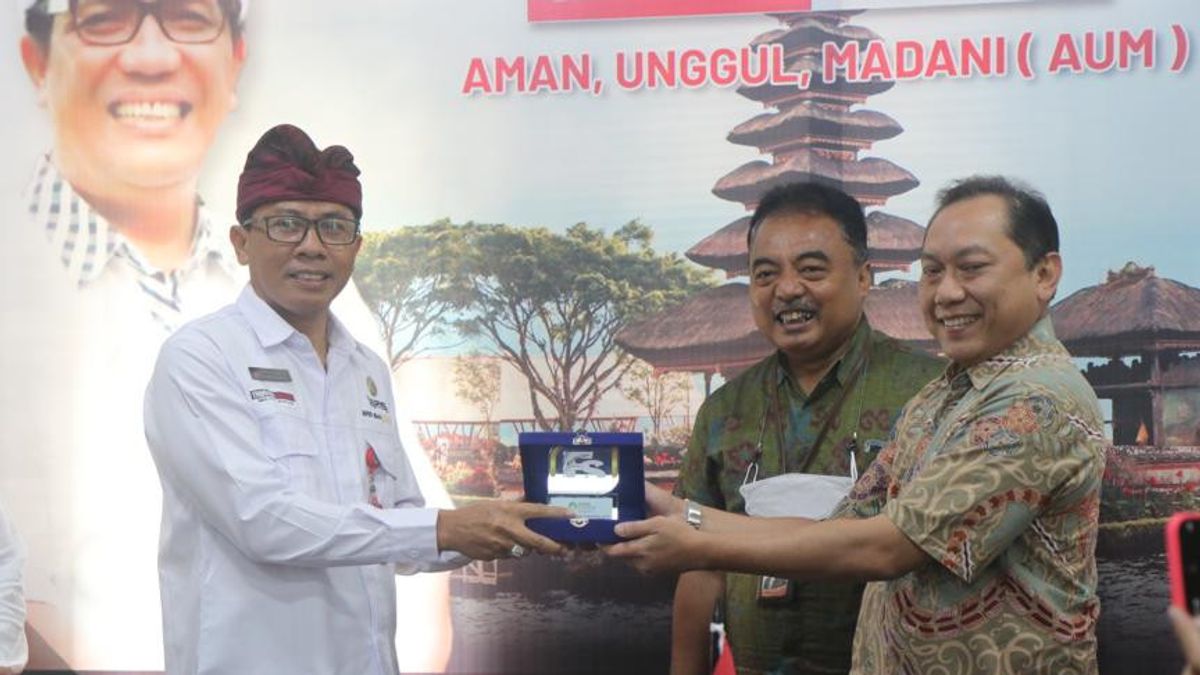JAKARTA - PT Food Station Tjipinang Jaya as the Food BUMD owned by the DKI Jakarta Provincial Government (Pemprov) held a working visit to Tabanan Regency, Bali, Thursday, July 21.
President Director of PT Food Station Tjipinang Jaya Pamrihadi Wiraryo said the working visit was carried out in the context of cooperation and collaboration in the food sector and business development, especially rice with the Tabanan Regency Government through the Regional Company (Perusda) Dharma Santhika.
During his working visit, the President Director of PT Food Station Tjipinang Jaya, Pamrihadi Wiraryo signed a business development cooperation in the form of joint management of rice factories, rice cultivation with varieties in accordance with market demand and transfer of knowledge and technology as well as increasing the competence of human resources with Perumda Dharma Santhika, represented by the main director Kompiang Gede Pasek Wedha, and witnessed by officials in the Tabanan Regency Government.
Pamrihadi said that PT Food Station, which has been established since 1972 and has undergone various transformations, is currently focusing on managing the rice wholesaler market in Cipinang.
His party also said that he had conducted an assessment with local modern retailers, which is a continuation of the downstream business development which is currently running in more than 30 thousand outlets throughout Indonesia.
"Currently we are also cooperating with East Kalimantan in order to meet the needs of the prospective New Capital City as well as cooperation with Central Kalimantan where we all know that there is a need to get rice supplies," said Pamrihadi in his statement, Friday, July 22.
Through this collaboration, he continued, his party also hopes to provide assistance for Gapoktan in Tabanan Regency. Where, Gapoktan collaborates with Perumda to provide land and farmers carry out cultivation and management in accordance with SOPs that are usually carried out by Food Station partners.
"So that it can increase the productivity of the grain produced, as well as cultivate varieties according to market needs and ensure the quality of the harvest to be more competitive," he explained.
The English, Chinese, Japanese, Arabic, and French versions are automatically generated by the AI. So there may still be inaccuracies in translating, please always see Indonesian as our main language. (system supported by DigitalSiber.id)













